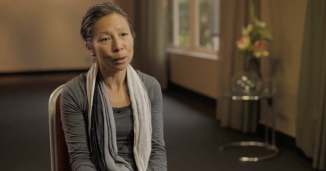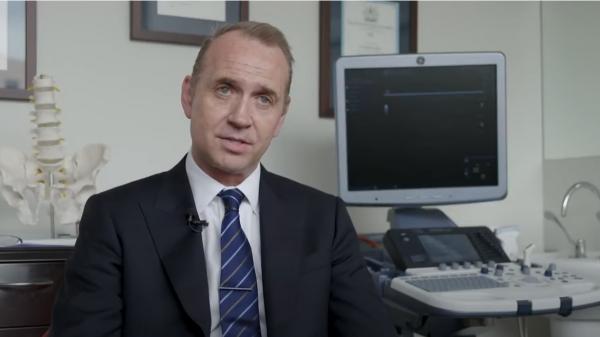Piecing the symptoms together
View transcript
Dr. Samuel Whittle
Rheumatologist
So for some people the diagnosis it’s really straightforward and often what that means is that after the very first GP constellation they will be referred on to a rheumatologist. Whereas for other people it’s a much more difficult process and often it’s a matter of doing some more tests and observing things over time before deciding whether or not to make a referral.
Dr. Marina Kang
General Practitioner
So with ankylosing spondylitis the history-taking would be slightly different because it would be a specific back-related condition so we talk to them about how long they’ve had that pain for, the stiffness would be, to what extent they’ve got that stiffness, what helps them, what makes it worse, and asking them about family history perhaps. Then we’d go into the examination. I’d look at their overall back extent of their back flexibility. I also look at their bowels to see if their bowels have been affected and they’ve maybe not put the two things together and having a look at their other systems to check for their eyes. Again with their skin I’d be looking at their skin extent of involvement as well as which joints might be involved if any at the time and then going through the process of any family history and whether external joint signs that they might be having as well.
Linda Bradbury
Nurse Practitioner, Rheumatology
Then then he’s probably going to want to do some blood tests and possibly a urine test and again these are all quite normal things.
Dr. Marina Kang
General Practitioner
So we order a full blood count, a rheumatoid factor. We might want to check their liver and kidneys to make sure that they’re in good functioning order. We might check their iron studies to make sure their fatigue is not related to an iron deficiency and just make sure that their dietary nutrition is good overall. Generally those blood tests are fundamental in most patients but with rheumatoid patients we will look for the rheumatoid factor; 80% of rheumatoid arthritis patients have a specific blood rheumatoid factor so we can show them that that’s what they have although a minority will have that and not have rheumatoid arthritis. With ankylosing spondylitis there’s no rheumatoid factor in their blood and neither is there in psoriatic arthritis. But there’s a specific gene that is more common in these patients with ankylosing spondylitis and psoriatic arthritis that makes it different from the rheumatoid arthritis but the conditions of the joint is the same, it’s just a blood perspective that is slightly different.













